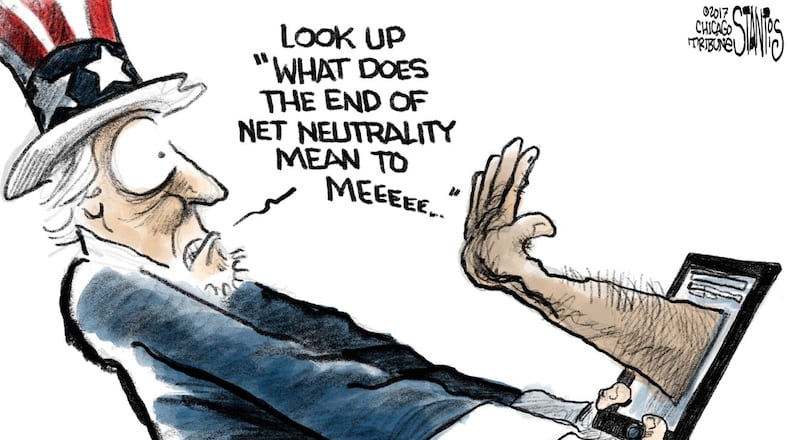What is net neutrality?
Net neutrality is the idea that internet service providers should allow access to all content regardless of the source and not prioritize or block certain content.
The Federation Communications Commission approved the rules in 2015, classifying internet as a telecommunications service and allowing the government to regulate it as such for the first time.
The rules barred internet providers from blocking some sites and prioritizing others. In late 2017, the FCC voted to repeal the rules. FCC Chairman Ajit Pai said the commission was trying to restore “the light-touch framework that has governed the internet for most of its existence.”
What repeal could mean for you
Laws that prevented internet service providers from discriminating against certain streaming video, music or Web content are now nullified.
In the place of net neutrality is the FCC's "Restoring Internet Freedom" Order. According to the FCC's website, the Federal Trade Commission will now be charged with taking action against ISP's for "anticompetitive acts or unfair and deceptive practices."
The Federal Trade Commission had control of regulating the internet until 2015, when the FCC approved net neutrality rules.
Some proponents of net neutrality fear that lack of such rules would lead to “digital fast lanes” in which companies and wealthy households have access to higher speed internet connections and all other users would be left with slower connections.
Under the new FCC rules, internet providers must publicly disclose their network management practices.
About the Author
